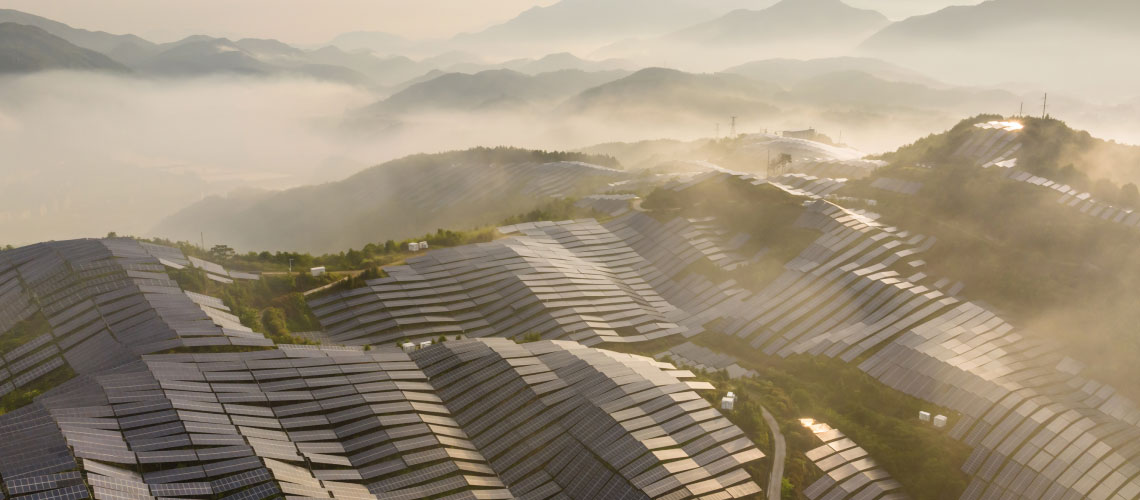
Published
- Financing
- Trade
OECD launches “landmark modernisation” of export credits
Hailed as a “complete game changer for the export finance sector”, the OECD reform of the Arrangement on officially supported export credits improves flexibility, particularly in the financing of climate-related projects.
After years of negotiations, the Participants to the OECD Arrangement have agreed on a modernisation of export credit terms. The scope of projects eligible under the Climate Change Sector Understanding is broadened to include more climate-related investments. Maximum repayment terms will be increased from 18 to up to 22 years for climate-friendly and green transactions, and from 8.5/10 years to up to 15 years for most other transactions. Other improvements are a reduction of the minimum premium rates for longer repayment periods and more flexible repayment profiles.
While the reform package reflects climate awareness, it is much broader in scope and will improve flexibility in many social and infrastructural areas across the export finance spectrum.
ECAs as well as commercial banks and other financial institutions have long called for such a change. At EKN, Senior Advisor Barbro Johansson comments: “This is tremendous news for EKN and other ECAs who are looking for new ways to support exporters involved in, for example, energy transition projects. By updating the Arrangement to facilitate longer tenors, and with repayment profiles better tailored to the cash flows, it is a welcome development. This means that ECAs can increase their role in the transition,” she says and adds: “These long-awaited changes will improve the affordability of green and social infrastructure and allow the export finance market to play a more prominent role in contributing to a more sustainable world.”
Johansson points out that the increased flexibility must still be supported by a proper risk assessment. “While we welcome opportunities for longer and more flexible repayment terms, when justified, it will still be subject to sound underwriting which benefits all parties.”
Levelling the playing-field
TXF News calls the modernisation “a complete game changer for the export finance community and what many involved in export finance – commercial banks, ECAs, sponsors, borrowers, exporters, governments, funds, investors and others – have been pushing for over a good number of years. And it should ultimately also help in levelling up the so-called 'playing-field' with those countries operating outside the OECD Arrangement.”
The increased flexibility in the financing of green projects is certainly good news for Swedish exporters, concludes Johansson at EKN: “From hotbed startups to established multinational giants, Swedish companies that enjoy a prominent position in cleantech, thanks to innovations that help facilitate the transition to a carbon-free society. Electric mining equipment, transmission infrastructure for offshore wind farms and solar parks, non-fossil fertilizers and zero-emission as well as biofueled public transport are but a few examples.”
Facts
The OECD's Arrangement on Officially Supported Export Credits is a "gentlemen's agreement" amongst its Participants: Australia, Canada, the European Union, Japan, Korea, New Zealand, Norway, Switzerland, Turkey, the United Kingdom and the United States. The Arrangement first came into existence in 1978, building on the export credit “Consensus” agreed among a smaller number of OECD countries in 1976. Since then, it has been regularly developed and updated to reflect Participants’ needs and market developments.
The main purpose of the Arrangement is to provide a framework for the orderly use of officially supported export credits by fostering a level playing field in order to encourage competition among exporters based on quality and prices of goods and services exported rather than on the most favourable officially supported export credits.
To this end, the Arrangement places limitations on the financing terms and conditions (repayment terms, minimum premium rate, minimum interest rates) to be applied when providing officially supported export credits as well as on the use of tied aid by the Participants. The Arrangement contains various transparency provisions among Participants to ensure that these limitations are effectively applied.
The Participants agreed on the expansion of the scope of green or climate-friendly projects eligible for longer repayment terms, or eligible under the Climate Change Sector Understanding (CCSU), to those related to:
- Environmentally sustainable energy production
- C02 capture, storage, and transportation
- Transmission, distribution and storage of energy
- Clean hydrogen and ammonia
- Low-emissions manufacturing
- Zero- and low-emissions transport, and
- Clean energy minerals and ores.

Contact EKN
Do you want to get in touch with EKN? Here you will find visiting and delivery addresses, telephone and fax numbers and e-mail addresses. You will also find information on how to access public documents.
Contact EKN